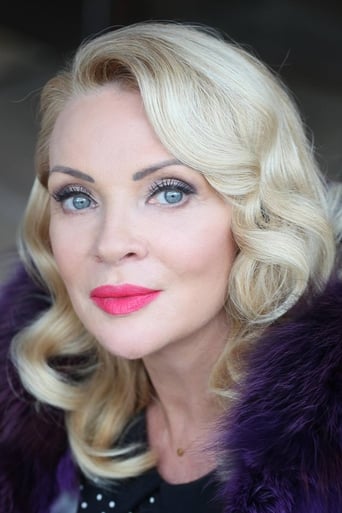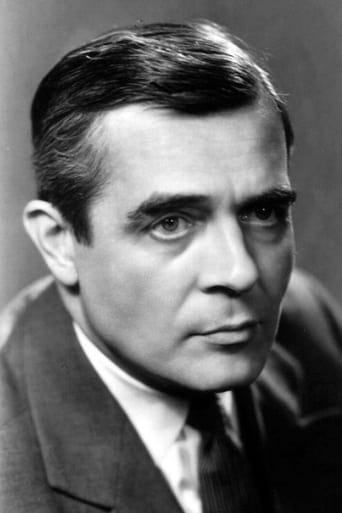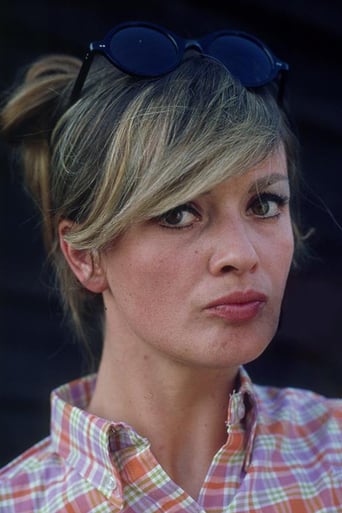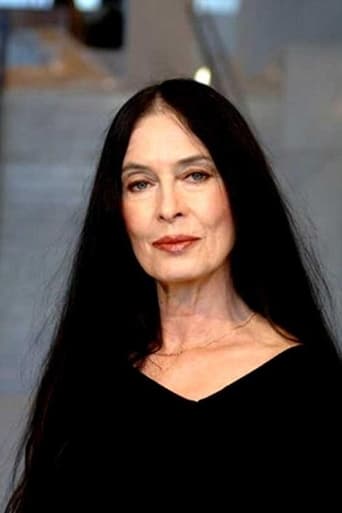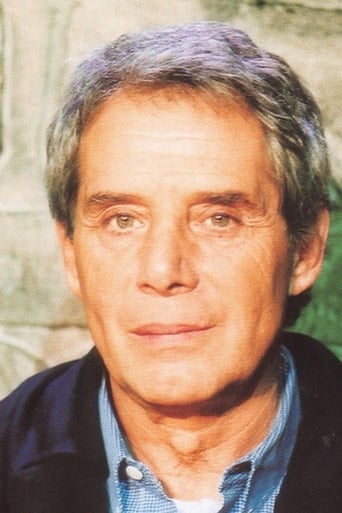bayardhiler
We've all heard or seen the classic fairy tale of "Beauty and the Beast" but it's probably fair to say that you've never seen a version as beautifully done as this 1978's Czech adaptation. Absurd you say? Like most people who grew up in the 90's, I was long under the impression that the only film version of "Beauty and the Beast" that counted was Disney's 1991 animated classic. But then I came across this version. Directed by Juraj Herz, it sets the tale in a gloomy world where we met a well to do merchant who's expecting a large shipment of priceless jewels, diamonds, the whole works. But unfortunately for him, they are stolen in route by the dreadful beast that haunts the black forest. Desperate to provide for his three daughters, he sets out to the beast's decrypted mansion to sell a priceless painting of his late wife. At first, everything goes well until he makes the mistake of plucking a rose from the beast's garden. Through some creative camera work, we don't see the beast right away but from the father's reaction know that he is hideous and angry . The beast tells him that if he wants to live, one of his daughters must come on her own free will to be with him forever. Julie, his kindest and most caring daughter, volunteers to sacrifice herself for her father despite not knowing the grisly details. When she first meets the beast, she only knows his voice since he only talks to her from behind. Yet, Julie can't help but feel something tug at her heart and what follows is one of the most dark and surreal love stories ever put to screen. Let me just state that this is probably not the best version to show little kids due to the fact that it may give them nightmares! The director here was clearly going for a creepy and atmospheric take on the legend with the dark lighting, eerie shooting locations, and winding camera angles from the beast's point of view. In other words, it's what a fairy tale is supposed to be before Hollywood waters it down for kids. Also the music score, with its foreboding organ chimes, goes a long way to establishing suspense and apprehension as well as beauty when that organ switches to piano. As for the beast himself, he manages to be both strange and ugly with his bird/beast hybrid look (Considering the time and country it was made in, the costume and make up is fairly realistic). Since this beast is capable of using magic, he has his own goblin servants, including one who sits in chandelier that moves up and down when it's time to serve drinks. But the movie is more than just a horror picture; it's also a love story, one that is told well by its writing and actors. The filmmakers are able to present the beast as a complicated being who is torn between his new found love for Julie and his inner animal, which is presented in the form of a malicious whisper. Despite being under a lot of make up, Vlastimil Harapes is able to shine through and make you care about his plight. As for Julie, she could not be any more lovelier than in the form of Zdena Studenkova, who cuts a fine figure but more importantly, a beautiful personality for her character. Unlike her materialistic sisters, she has an innocent heart and truly cares for her father's well being, not just his money. But can Julie overcome the beast's hideous face and can the beast repress his animal instinct once and for all so they can live happily ever after? It all leads up to heartfelt conclusion that teaches us it's not what's outside that counts, but what is inside. Sadly (Maybe because it was made behind the iron curtain) the movie does not seem to be all that available. The only place I can recommend would be you tube. As far as finding a DVD, it appears to only be available in Europe. But the you tube version does have English subtitles and is in fair viewing condition. With that said, I urge you to check it out this beautifully dark version of the tale while you still can and remember that a woman makes a man she loves beautiful.
vainoni
So, "Panna a Netvor"--"Beauty and the Beast" for English-speakers, though a more accurate translation is "The Maiden and the Monster." It's a more horror-tinged version of the tale, and is really not for little kids.Fairy tales seem to specialize in magical transformations: beasts into humans , paupers into princes and princesses, etc. But look again and you'll see that the transformations aren't really transformations--Cinderella, for example, was always a princess on the inside; she just had to be recognized as one. So what many fairy tales do is show things as they really are--or, at least, as they should be. This version of "Beauty and the Beast" shows things as they are *and* how they should be, and works toward bridging the gap, making it more modern than your average fairy tale.When the story starts, things as they are are pretty horrifying: our "Beast" (Netvor) is not a prince--he is never called one, he lives in a mansion and not a castle, and though he has servants they are monsters similar to himself. He is partially a bird and partially a beast (which is represented by both his body and a sinister voice that tells him to kill things, including our "Beauty," Julie). His little voice tells us that he's been fully transmogrified for at least twenty years.It's usually pretty hard to make any "Beauty" interesting, since she merely exists to be lovely and good so that the "Beast" figure can be saved, but this movie gives it a go. As in the original fairy tale, she is the daughter of a merchant, not an inventor (as in the Disney version); her two selfish, money-obsessed sisters are slated to be married to other merchants, and their father has sunk everything into buying things for their respective weddings. Unfortunately, the goods need to travel through the Black Forest, and the people driving the carts stumble across one of the Beast's trip wires. So all the merchant's property is destroyed, and he and his three daughters are destitute. The merchant goes off with their mother's portrait to sell. The two selfish daughters want gold and gems, but Julie will accept a wild rose (his suggestion, not hers). He *also* needs to go through the Black Forest (WHY? WHY?!), but our Beast has gotten his fill of violence from the destruction of the merchant's goods, so his human side is slightly dominant over his beast one. When the merchant stumbles into the house, the Beast has his servants feed him and give him wine, and he even lays out jewels on the table for the merchant to take in exchange for the portrait. (These gems are not at all valuable to the Beast--magic works according to strange rules in this movie.) Then the merchant takes one of the Beast's roses, and you *know* what happens then. :) When he returns with shiny things, the two older sisters are thrilled, even after the merchant tells them he needs to die because he took a rose for Julie. Unless, of course, one of the three daughters will go back to the Beast in his place (that's always part of the deal)...and there's Julie, riding off into the forest. Notice, though, that the merchant said nothing about a beast.Anyway, Julie shows up at the manor, drinks some suspicious-looking wine (poured by the gremlin who lives in the chandelier) and passes out. She then has a dream of being shut up in a coffin (alive) and rescued by (we presume) the Beast in human form. While she sleeps, the Beast stands over her and struggles with the little voice that wants him to kill her and drink her blood. Finally, he runs off into the woods and kills a deer.When Julie wakes up, she's alone. While she's sitting in front of the fire, the Beast shows up behind her, ordering her not to turn around, and he interrogates her. She tells him why she's there. He asks if he can visit her the next night, and the cat-and-mouse chase begins. Believe it or not, the little voice is still pretty adamant about killing her. So her days go on--every morning and evening, the table seems to set itself, and she has pretty jewels and dresses to wear, and life is good. The Beast visits her at night, but only briefly.Now I need to back up a bit. Magic, in this movie, is dependent on two things: the worth of the object to be transformed and how much the magic-maker/receiver deserves that object. The Beast's gremlins serve him less because he deserves it and more because his force compels it, but it's the same general principle. The gems that the Beast gave Julie's father were created only because he gave up the portrait of his wife--the sentimental value transformed everyday, broken-down objects into precious gemstones, because the merchant deserved them for his sacrifice. Julie's things are beautiful because she deserves them. When she goes home, her sisters insist on "borrowing" (read: stealing) her things, but as soon as the one sister tries on her dress, it turns to rags, and as soon as the other sister tries on her necklace, it turns to mud. Why? Because they don't deserve them. There is a strong element of justice in a lot of fairy-tales, but the theme does not usually play out quite so strongly in "Beauty in the Beast" (which is usually skewed toward *not* judging, based on appearances or anything else).The Beast is made human due to the same general principles of this magic. He works toward deserving happiness. Julie is an active agent, but he is (as Michelangelo said) the marble and the sculptor--the substance, and the worker of that substance.The end is a reprise of Julie's earlier dream, and is very '70's and a little tacky. Ah well.This is probably my favorite version of the fairy tale. Recommended.

